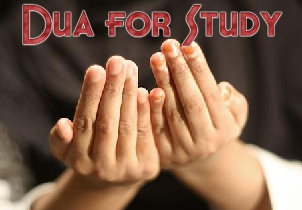Posts Tagged ‘True Dreams’
- In: All | Allah الله | E-Books | Islam
- 42 Comments
17 Rules of Islamic Dream Interpretations

17 Rules of Dream Interpretations
Ibn Qutaybah ad-Dinawari رحمه الله says in his book about dream interpretations, “There is nothing in which people deal with from the different sciences that is more obscure, delicate, exalted, noble, difficult and problematic than dreams because they are a type of revelation and type of Prophethood.”
Narrated Anas bin Malik رضي الله عنهAllah’s Messenger صلى الله عليه و سلمsaid, “A good dream (that comes true) of a righteous man is one of forty-six parts of prophet hood.” [Sahih al-Bukhari]
Some scholars tried to give explanation to this ratio of 1:46. We have no way to find out that if their explanation is correct or not. Prophet hood of Prophet صلى الله عليه و سلم extended from 40 to 63 years meaning for 23 years. We know from Seerah that six months before becoming a Prophet, Messenger of Allah صلى الله عليه و سلمwas seeing dreams that would come out to be true on a very frequent basis so much so that he would see a dream one night and it would come to be true the next morning. So the ratio of 6 months to 23 years is 1:46.
1) There are 3 types of dreams: Imam at-Tirmidhi رحمه الله narrates from Muhammad Ibn Sirin رحمه الله who narrates from Abu Hurairah رضي الله تعالى عنه that Prophet صلى الله عليه وسلم said, “There are three types of dreams: 1) True Dreams 2) A dream in which a person is speaking to himself (i.e. whatever you were thinking about in the day time, you see at night) 3) A dream from shaytaan in which he wants to make you sad ”
In one hadith it is mentioned that one should stand up and pray and in another the he should not mention it to anyone.
Abu Salamah رضي الله عنه once said, “Sometimes I would see a dream that would be heavier on me than carrying a mountain. But since I heard this hadith I wouldn’t care about the bad dream I would see.”
Narrated Abu Sa‘id Al-Khudri رضي الله عنه: The Prophet صلى الله عليه و سلم said, “If anyone of you sees a dream that he likes, then it is from Allah, and he should thank Allah for it and narrate it to others; but if he sees something else, i.e., a dream that he dislikes, then it is from Satan, and he should seek refuge with Allah from its evil, and he should not mention it to anybody, for it will not harm him.” [Sahih Muslim]
Q1) A question arises, is every dream that a believer sees good?
A1) Al Muhallab رحمه الله says, “Most of the dreams of the righteous people are good dreams because sometimes a righteous person could see a dream that is meaningless but that is not very frequent because shaytaan’s control on them is very weak. And the opposite is true with other people because shaytaan has a stronger grasp over them. People are of the categories:
1) The Prophets: all of their dreams are truthful and but sometimes they need interpretation. The good dream is divided into 2 categories:
a) Direct dream: something one would see in a dream and the exact scene repeats itself in day-time when you are awake and this dream does not need interpretation.
b) A dream the comes in symbols and it needs to be interpreted.
2) The righteous: most of the time their dreams are truthful (most of them need to interpreted) and sometimes their dream are direct.
3) Rest of the people: most of their dreams are not true but some of them could be true.” [Fath al-Bari bi Sharh Sahih al-Bukhari]
2) Do not mention the dream for interpretation except to a scholar or a person who would advise you sincerely.
Prophet صلى الله عليه و سلم said, “You should not mention this dream to an envious person…”
There is also evidence for this in the Qur`an: (Remember) when Yûsuf (Joseph) saidto his father: “O my father! Verily, I saw (in a dream) eleven stars and the sun and the moon, I saw them prostrating themselves to me.” He (the father) said: “O my son! Relate not your vision to your brothers, lest they arrange a plot against you. Verily! Shaitân (Satan) is to man an open enemy! {Surat al-Yusuf, ayatyn 4-5}
3) Seeing Prophet صلى الله عليه و سلم:
Narrated Anas رضي الله عنه the Prophet صلى الله عليه و سلم said, “Whoever has seen me in a dream, then no doubt, he has seen me, for Satan cannot imitate my shape. [Sahih al-Bukhari]
Q2) There is an issue here, what if a person sees Prophet صلى الله عليه و سلم and he feels that it is him but his description in the dream if different than the one we know of from ahadith. So is the person in the dream Prophet صلى الله عليه و سلم?
A2) Az-Zuhri رحمه الله says that Ibn Sirin رحمه الله said, “If you see him according to his description.” An-Nawawi رحمه الله, however, has a contrary view and he says, “As long as you felt in your dream that the person you saw was Prophet صلى الله عليه و سلم then it is him even if he comes in a different form.” Ibn Taymiyyah رضي الله عنه supports the view of Ibn Sirin رحمه الله
4) A repetition of a dream is a sign of its truth. It does not matter if the same person sees the dream more than once or more than one person.
‘AbduLlah ibn ‘Umar رضي الله عنهما reported that some people were shown the Night of Qadr as being in the last seven days (of the month of Ramadan). The Prophet صلى الله عليه و سلم said, “I see that your dreams strengthen each other that Night of Qadr is in the last seven nights of Ramadhan so whoever searches for it, would search for it in the last seven days (of Ramadan).” [Sahih al-Bukhari]
Also the dream about Adhan when 2 Sahabah ضي الله عنهما saw the same dream.
5) Q3) When is the most expected time to see a righteous dream? At night or day time? Are all the times equal (whether seen at the beginning of the night or end of the day)?
A3) Ibn Sirin رحمه الله said, “Dreams of day time are equal to the dreams of night.” [Sahih Muslim]
6) Ibn Battal رحمه الله said, “Dreams are of two types: a clear evident dream like somebody would dream about himself giving dates to someone and during the day time he would give somebody dates. This type of dream doesn’t need any interpretation. Secondly, a dream that comes in symbols and this type you would understand its meaning unless you get it interpreted by a person who has knowledge and experience dream interpretation because sometimes the symbols are very delicate and sophisticated.”
Like the dream Prophet صلى الله عليه و سلم saw in which he was drinking milk from a vessel and when some of it was remaining, he gave it ‘Umar رضي الله عنه. Prophet صلى الله عليه و سلم interpreted it as knowledge. This means that Prophet صلى الله عليه و سلم absorbed the knowledge and he mentions that the milk was so much that it started flowing beneath his nails. So he had so much knowledge in him, that it started flowing from him.
7) Dreams can be about the past or the present or the future.
8) True dreams increase towards the end of times.
Ibn Sirin رحمه الله said,” I heard Abu Hurairah saying, ‘Prophet صلى الله عليه و سلم said, “When Time approaches, the dream of the believer rarely would lie.’” [Sahih al-Bukhari]
“When Time approaches…”is explained in two different opinions:
1)Al-Khattabi رحمه الله said, “The meaning of ‘When Time approaches…” is the time of night and the time of day. When the time of night approaches the length the time of day, then the dreams of the believer will be true. These are the two times when flowers open up and when fruits are ripe. The scholars of dream interpretation actually state that these are the two time when the dreams are most likely to be true.”
2)Al-Qurtubi رحمه الله says, “What is meant by this hadith, and Allah سبحانه و تعالى knows best, is the end of times and it is talking about the group of believers that will be with ‘Isa ibn Maryam عليه سلام after he kills dajjal.”
Ibn Abi Jamrah رحمه الله says,” The reason why the believer sees true dreams at the time is because the believer will be ghareeb (stranger) as was mentioned in the hadith, ‘Islam began as something strange and it will return to the way it began being strange so give glad tidings to the strangers so give glad tidings to the strangers.’”
Ibn Hajar al-‘Asqalani رحمه الله comments on all the opinions by saying, “Whenever the times are difficult for the believer, he will see dreams that are true frequently because he needs help. When the believer is alone, when the times are difficult, when you don’t find people supporting on truth, then Allah سبحانه و تعالى will inspire you to give you glad tidings through the good dreams you would see and this is to give the believers in those difficult and testing times gives the believers strength, it gives them confidence, it gives them hope so they would see a lot of dreams that would come true.”
For example the brothers who are doing Jihad feesabiliLlah see a lot of dreams that come out to be true because they are being tested by Allah سبحانه و تعالى thus He assists them.
9) Most of the times, if the dream is a glad tiding from Allah سبحانه و تعالى it would take a long for it to occur while if it is a warning it would occur swiftly.
For example Yusuf عليه سلام’s dream took a very long time for it to happen around 40 years. Some scholars say this is because Allah سبحانه و تعالى gives the believer glad tidings early on to give him confidence and hope, to inspire him in his life. While if it is a warning, you would see it and it would occur very soon so that it would be the reason of fear in your heart.
10) Dreams are glad tidings and warnings but can not be used as a source of Shari‘ah.
Ash-Shatbi رحمه الله says regarding this, “Benefit of the dream in giving the believer a glad tiding or warning not in legislation and judgement or rulings.”
11) If one sees a dream that is very long like a movie or someone is chasing you and it never ends then most likely that dream doesn’t mean anything. True dreams are short and concise.
12) The dream of a believer pleases him but it does not make him proud or over confident.
Ibn Muflih رضي الله عنه mentions in his book Adaab ash-Shar‘iyah, “Ibrahim al-Humaydi was righteous man and Imam Ahmad bin Hanbal visited him so Ibrahim told Imam Ahmad, ‘My mother has seen a dream for you where she saw this-and-that for you,’ and then he mentioned Jannah. Imam Ahmad said, ‘My brother, Sahl ibn Salamah, people used to see dreams for him similar to what you mentioned and in the end he ended up shedding blood so the dream pleases the believer, it doesn’t make him boastful.”
13) Dream interpretation is not certain but presumptive and Allah سبحانه و تعالى says in Surah Yusuf: “And he said to the one he presumed to be saved…” {ayah # 42}
Ibn Kathir رحمه الله mentions in his An-Nihayah wal Bidayah that there was a caliph (not a good one) of Ibn ‘Abbas who saw dream that he was climbing a dream with 28 steps. So he had that dream interpreted. The one who interpreted his dream told him that the meaning of this dream is, “You will rule for 28 years.” But he died six months later. He died at the age of 28 so the steps were representing his age not the time for his rule.
There was a woman who dreamt that her daughter would break three banners (flag carried in war time). So she went to Ibn Sirin رحمه الله and he interpreted that dream saying, “If her dream is true, it means that she would marry three noble men all of them would be killed.” When her daughter grew up, she married Yazid ibn al-Muhallab who was a great leader in ‘Iraq and he was killed. Later on, she married ‘Amr ibn Yazid at-Taymi and he was killed. Her third marriage was with al-Hasan ibn ‘Uthman ibn ‘Abdur Rahman ibn ‘Awf رحمه الله, the grandson of the Sahabi ‘Abdur Rahman bin ‘Awf. She had an argument with him and she told him, “In the Name of Allah, you would be killed.” He asked her the reason and she told him about her dream. He said, “Alright, I am going to divorce you since you think I am going to be killed now!” Finally, she married al-‘Abbas ibn ‘AbdiLlah ibn Harith ibn Nawfal ibn Harith ibn ‘Abdul Muttalib and he was killed.
One man saw in a dream, during the plague, that caskets were coming out of his house and the number of them was equal to the number of his family. So, he interpreted the dream that his entire family would be killed in the plague. And the dream started to manifest itself. His family were dying one after the other and all the bodies were coming out of his house exactly how he saw in his dream until he was the last member of his family left so he was pretty sure that he would be killed by the plague because his dream was, until now, true. But a thief came into his house and was struck by the plague, he fell ill in his house, he died and he was the last body to leave the house and not the person who saw the dream.
14) It is haram and a great sin to claim that one has a seen a dream whilst he has not seen it or to lie in it.
Narrated ‘AbduLlah ibn ‘Abbas رضي الله عنه that the Prophet صلى الله عليه و سلم said, “Whoever claims to have seen a dream that he has not seen, would be told to tie between two hairs on the Day of Judgement.”
15) A dream could be seen by a person but it could be for someone else.
Al Hakim and ‘AbduLlah Ibn Mubarak narrate that someone saw a dream for Abu Jahl that he became a Muslims and pledged allegiance to Prophet صلى الله عليه و سلم. But this never happened. So this dream was for his son, ‘Ikrimah رضي الله عنه who became a Muslim and pledged allegiance to Prophet صلى الله عليه و سلم later on.
A dream was seen for Usayd bin Abil ‘Aas that he became the governor of Makkah and he never did but his son ‘Attab became the governor of Makkah.
16) Same symbol in a dream could mean different things for different people
For example: A man came to Ibn Sirin رحمه الله and told him that he had seen himself in a dream giving Adhan. Ibn Sirin رحمه الله replied, “You will make Hajj.” Another man came with the same dream and Ibn Sirin رحمه الله replied, “You are a thief!” Ibn Sirin رحمه الله was asked the reason of him giving different interpretations of the same dream to different people and he said, “Because I saw in the first man’s face righteousness and Allah سبحانه و تعالى says in the Qur`an that Ibrahim عليه سلام made adhan calling people to Hajj so I interpreted this mean that this person would make Hajj. Whilst I saw evil on the face of the other man and Allah سبحانه و تعالى says in Surah Yusuf, ‘then a crier cried: ‘O you (in) the caravan! Surely, you are thieves!’ so I interpreted it to mean that this person is a thief.’”
17) Prophet صلى الله عليه و سلم said, “A dream is hanging on the leg of a bird (and in another narration on the wing of the bird) as soon as it is interpreted, it happens as it was interpreted.” So some scholars say that if you take your dream to a scholar, it would happen as it is interpreted by him so that’s why you must take it to a person who has knowledge about dream interpretation and or a person who would give you a sincere advice and not to the person who is envious so if the dream is interpreted it would happen as he interpreted.
However,
there is a difference of opinion regarding this issue.
And Allah سبحانه و تعالى knows best.
by Imam Anwar al-‘Awlaki




[where ever you post,please add source link.either in website or even in facebook NOTE…please….spread the link of site..]

![]() Note:I’d love to see who visit my website,your views about website. Click here to leave your feedback.
Note:I’d love to see who visit my website,your views about website. Click here to leave your feedback.

Ways of protecting oneself from nightmares and disturbing dreams
Posted by: KING-slave of ALLAH ! on: April 20, 2011
Ways of protecting oneself from nightmares and
disturbing dreams

Praise be to Allaah.
1. Dreams that disturb a person and keep him awake come from the Shaytaan. In general, the dreams that people see are either good dreams which come from Allaah, a reflection of things which a person is thinking about, or a third type, which are dreams that come from the Shaytaan.
It was reported from Abu Hurayrah that the Prophet (peace and blessings of Allaah be upon him) said: “Towards the end of time, hardly any dreams that the Muslim sees will not come true. The one whose dreams are the most truthful will be the one whose speech is the most honest. The dreams of the Muslim form one of the forty-five parts of Prophecy. Dreams are of three types: the good dream which is good news from Allaah; dreams which cause distress, which come from the Shaytaan; and dreams concerning matters which a person is thinking about…” (Narrated by Muslim, 2263)
2. The Prophet (peace and blessings of Allaah be upon him) told us how to rid ourselves of the influence of Shaytaan during sleep. This can be achieved by reciting verses from the Qur’aan and du’aa’s narrated from him, before going to sleep.
It was reported that Abu Hurayrah (may Allaah be pleased with him) said: “The Messenger of Allaah (peace and blessings of Allaah be upon him) put me in charge of guarding the zakaah of Ramadaan. Someone came and started to scatter the food. I took hold of him and said, ‘I will take you to the Messenger of Allaah (peace and blessings of Allaah be upon him).’… He said, ‘When you go to bed, recite Aayat al-Kursi and you will be protected by Allaah, and no shaytaan (devil) will come near you until morning.’ The Prophet (peace and blessings of Allaah be upon him) said, ‘He told you the truth even though he is a liar. That was a shaytaan.’” (Narrated by al-Bukhaari, 3101).
(b) It was reported that Abu Mas’ood al-Badri (may Allaah be pleased with him) said: “The Messenger of Allaah (peace and blessings of Allaah be upon him) said: ‘The last two aayahs of Soorat al-Baqarah – whoever recites them at night, they will be sufficient for him.’” (Narrated by al-Bukhaari, 3786; Muslim, 807).
Al-Nawawi said: “Concerning the phrase, ‘The last two aayahs of Soorat al-Baqarah – whoever recites them at night, they will be sufficient for him’, it was said that it means, they will be sufficient for him instead of praying qiyaam al-layl, or as protection from Shaytaan, or as protection from vermin. It could mean all of these things.”
(Sharh Muslim, 6/91, 92).
(c) It was reported that ‘Aa’ishah (may Allaah be pleased with her) said:
“When the Messenger of Allaah (peace and blessings of Allaah be upon him) went to his bed, he would blow into his hands and recite Qul Huwa Allaahu Ahad (Soorah 112) and the Mi’wadhatayn (Soorahs 113 and 114). Then he would wipe his hands over his face and his body, as far as they could reach.” ‘Aa’ishah said: “When he fell ill, He would ask me to do that for him.” (Narrated by al-Bukhaari, 5416; Muslim, 2192)
(d) It was reported that Abu Hurayrah said: “The Messenger of Allaah (peace and blessings of Allaah be upon him) used to tell us, when any one of us wanted to sleep, to lie on his right side, then say ‘Allaahumma Rabb al-samaawaati wa Rabb al-ard wa Rabb al-‘Arsh il-‘Azeem, Rabbana wa Rabba kulli shay’in, faaliq al-habb wa’l-nawa wa munazzil al-Tawraata wa’l-Injeeli wa’l-Furaan, a’oodhu bika min sharri kulli shay’in anta aakhidhun bi naasiyatihi. Allaahumma anta al-awwal fa laysa qablaka shay’un, wa anta al-aakhir fa laysa ba’daka shay’un. Wa anta al-zaahir fa laysa fawqaka shay’un wa anta al-baatin fa laysa doonaka shay’un. Iqdi ‘annaa al-dayna wa aghninaa min al-faqr (O Allaah, Lord of the heavens and the earth, and Lord of the Mighty Throne, our Lord and Lord of all things, Splitter of the seed and the date stone, Revealer of the Tawraat (Torah), the Injeel (Gospel) and the Furqaan (Qur’aan), I seek refuge in You from the evil of all things that You will seize by the forelock [i.e., have full control over them]. O Allaah, You are the First and there is nothing before You; You are the Last and there is nothing after You. You are the Manifest (al-Zaahir) and there is nothing above You; You are the Hidden (al-Baatin) and there is nothing beyond You. Settle our debt and spare us from poverty).’” (Narrated by Muslim, 2713).
(e) It was reported that Abu Hurayrah (may Allaah be pleased with him) said: “Abu Bakr said: ‘O Messenger of Allaah, teach me something that I can say in the morning and in the evening.’ He said: ‘Say, Allaahumma ‘Aalim al-ghaybi wa’l-shahaadah, Faatir al-samawaati wa’l-ard, Rabba kulli shay’in wa maleekahu, ashhadu an laa ilaaha illa anta. A’oodhi bika min sharri nafsi wa min sharr il-shaytaan wa shirkih (O Allaah, Knower of the seen and the unseen, Creator of the heavens and the earth, Lord and Sovereign of all things, I bear witness that there is no god except You. I seek refuge in You from the evil of my own self and from the evil and shirk of the Shaytaan). Say this in the morning and in the evening, and when you go to bed.’” (Narrated by al-Tirmidhi, 3392; Abu Dawood, 5067).
3. The Prophet (peace and blessings of Allaah be upon him) also taught us what to do when someone sees something unpleasant in a dream and wakes up as a result. That is: to spit drily to the left, to seek refuge with Allaah from the Shaytaan, to change the side on which one was sleeping, and to pray if one wishes.
(a) It was reported that Abu Qutaadah said:
“The Prophet (peace and blessings of Allaah be upon him) said: ‘Good dreams come from Allaah and bad dreams come from the Shaytaan. If any one of you sees a bad dream which makes him afraid, let him spit drily to his left and seek refuge with Allaah from its evil, then it will not harm him.” (Narrated by al-Bukhaari, 3118; Muslim, 2261).
(b) It was reported from Jaabir that the Messenger of Allaah (peace and blessings of Allaah be upon him) said: “If any one of you sees a dream that he dislikes, let him spit drily to his left three time, and seek refuge with Allaah from the Shaytaan three times, and change the side on which he was sleeping.” (narrated by Muslim, 2262).
(c) It was reported that Abu Hurayrah said: “The Prophet (peace and blessings of Allaah be upon him) said: ‘If any one of you sees something that he dislikes (in a dream), let him get up and pray, and not tell people about it.’” (narrated by Muslim, 2263)
If the Muslim follows this advice given by the Prophet (peace and blessings of Allaah be upon him), before he goes to bed, it is hoped that no shaytaan will come anywhere near him, and if he follows this advice when he wakes up from a bad dream, it will take away all anxiety and distress from him.
And Allaah knows best.


 [post this Article on your facebook wall,and share with friends.click above “Share” button …]
[post this Article on your facebook wall,and share with friends.click above “Share” button …]


[where ever you post,please add source link.either in website or even in facebook NOTE…please….spread the link of site..]

![]() Note:I’d love to see who visit my website,your views about website. Click here to leave your feedback.
Note:I’d love to see who visit my website,your views about website. Click here to leave your feedback.

Dreams and dream interpretation
Posted by: KING-slave of ALLAH ! on: April 20, 2011
Dreams and dream interpretation

True dreams are a part of Prophethood, as it was reported that the Prophet (peace and blessings of Allaah be upon him) said:
“True dreams are one of the forty-six parts of Prophethood.” (al-Bukhaari, 6472; Muslim, 4201)
Dreams marked the onset of Revelation (al-Bukhaari, 3; Muslim, 231).
The truthfulness of the dream is related to the sincerity of the dreamer. Those who have the most truthful dreams are those who are the most truthful in speech. (Muslim, 4200)
Towards the end of time, hardly any dreams will be untrue. The Prophet (peace and blessings of Allaah be upon him) said:
“That will be because the Prophethood and its effects will be so far away in time, so the believers will be given some compensation in the form of dreams which will bring them some good news or will help them to be patient and steadfast in their faith.” (al-Bukhaari, 6499; Muslim, 4200)
The same may be said of the miracles which appeared after the time of the Sahaabah. This did not happen during their time because they did not need them, due to their strong faith, but the people who came after them needed them (the miracles) because their faith was weak.
Dreams are of three types:
Rahmaani (those that come from Allaah),
Nafsaani (psychological, they come from within a person)
And Shaytaani (those that come from the Shaytaan).
The Prophet (peace and blessings of Allaah be upon him) said:
“Dreams are of three types: a dream from Allaah, a dream which causes distress and which comes from the Shaytaan, and a dream which comes from what a person thinks about when he is awake, and he sees it when he is asleep.” (al-Bukhaari, 6499; Muslim, 4200)
The dreams of the Prophets are wahy (revelation) for they are protected from the Shaytaan. The Ummah is agreed upon this. This is why Ibraaheem set out to fulfil the command of Allaah to sacrifice his son Ismaa’eel when he saw that in a dream; may peace be upon them both.
The dreams of people other than the Prophets are to be examined in the light of the clear Wahy [i.e., the Qur’aan and Sunnah]. If they are in accordance with the Qur’aan and Sunnah, all well and good; otherwise, they should not be acted upon. This is a very serious matter indeed, for many of the innovators among the Sufis and others have gone astray because of this.
Whoever wants to have true dreams should strive to speak honestly, eat halaal food, adhere to the commandments of sharee’ah, avoid that which Allaah and His Messenger (peace and blessings of Allaah be upon him) have forbidden, sleep in a state of complete purity facing the Qiblah, and remember Allaah until he feels his eyelids drooping. If he does all this, then his dreams can hardly be untrue.
The most truthful of dreams are those that are seen at the time of suhoor [just before dawn], for this is the time when Allaah descends and when mercy and forgiveness are close. It is also the time when the devils are quiet, unlike the time of darkness just after sunset, when the devils and devilish souls spread out.
(See Madaarij al-Saalikeen, 1/50-52)
Al-Haafiz ibn Hajar said:
All dreams are either of two types:
True dreams. These are the dreams of the Prophets and of the righteous people who follow them. They may also happen to other people, but this is very rare, such as the dream of the kaafir king which was interpreted for him by Yoosuf (peace be upon him). True dreams are those which come true in real life as they were seen in the dream.
Mixed up false dreams, which warn of something. These are of different types:
Games of the Shaytaan to make a person distressed, such as when he sees his head cut off and he is following it, or he sees himself falling into a crisis and cannot find anyone to save him from it, and so on.
When he sees some of the angels telling him to do something forbidden, or other things that cannot possibly make sense.
When he sees something that happens to him in real life, or he wishes it would happen, and he sees it very realistically in his dream; or he see what usually happens to him when he is awake or what reflects his mood. These dreams usually speak of the future or the present, rarely of the past.
See: Fath al-Baari, 12/352-354
Abu Sa’eed al-Khudri (may Allaah be pleased with him) said: the Prophet (peace and blessings of Allaah be upon him) said:
“If any one of you sees a dream that he likes, this is from Allaah, so let him praise Allaah for it and talk about it to others. If he sees other than that, a dream that he dislikes, this is from the Shaytaan, so let him seek refuge with Allaah from its evil and not mention it to anyone, for it will not harm him.” (Narrated by al-Bukhaari, 6584, and Muslim, 5862).
Abu Qutaadah said: the Prophet (peace and blessings of Allaah be upon him) said:
“Good dreams come from Allaah, and (bad) dreams come from Shaytaan. Whoever sees something that he dislikes, let him spit to his left three times and seek refuge with Allaah from the Shaytaan, for it will not harm him.” (Narrated by al-Bukhaari, 6594, and Muslim, 5862). The “spitting” referred to here is a soft, dry spitting with no saliva ejected.
It was reported from Jaabir (may Allaah be pleased with him) that the Prophet (peace and blessings of Allaah be upon him) said:
“If any one of you sees a dream that he dislikes, let him spit to his left three times, and seek refuge with Allaah from the Shaytaan three times, and turn over from the side on which he was sleeping.” (Narrated by Muslim, 5864)
Ibn Hajar said: to sum up what has been said about good dreams, we may say three things:
A person should praise Allaah for the good dream
He should feel happy about it
He should talk about it to those whom he loves but not to those whom he dislikes.
To sum up what has been said about bad dreams, we may say four things:
He should seek refuge with Allaah from the evil of the dream
He should seek refuge with Allaah from the evil of the Shaytaan
He should spit to his left three times when he wakes up
He should not mention it to anyone at all.
In al-Bukhaari, Baab al-Qayd fi’l-Manaam, a fifth thing was narrated from Abu Hurayrah, which is to pray. The wording of the report is: whoever sees something he dislikes (in a dream) should not tell anyone about it; rather he should get up and pray. This was reported as a Mawsool report by Imaam Muslim in his Saheeh.
Muslim added a sixth thing, which is to turn over from the side on which one was lying.
In conclusion, there are six things to do, the four mentioned above, plus praying two rak’ahs, for example, and turning over from the side on which one was lying to lie on one’s back, for example.
See Fath al-Baari, 12/370.
According to a hadeeth narrated from Abu Razeen by al-Tirmidhi, he should not tell anybody about it except a very close friend who loves him very much, or who is very wise. According to another report, he should not talk about it except to one who is wise or one who is dear to him. According to another report, he should not tell of his dream except to a scholar or one who will give sincere advice. Al-Qaadi Abu Bakr ibn al-‘Arabi said: as for the scholar, he will interpret it in a good way for him as much as he can, and the one who will give him sincere advice will teach him something that will be of benefit to him and will help him to do that. The one who is wise is the one who knows how to interpret it and will tell him only that which will help him, otherwise he will keep quiet. The one who is dear, if he knows something good he will say it, and if he does not know or he is in doubt, he will keep quiet.
See Fath al-Baari, 12/369
Imaam al-Baghawi said:
Know that the interpretation of dreams falls into various categories. Dreams may be interpreted in the light of the Qur’aan or in the light of the Sunnah, or by means of the proverbs that are current among people, or by names and metaphors, or in terms of opposites. (Sharh al-Sunnah, 12/220)
He gave examples of this, such as:
Interpretation in the light of the Qur’aan: such as a rope meaning a covenant, because Allaah says (interpretation of the meaning):
“And hold fast, all of you together, to the Rope of Allaah…” [Aal ‘Imraan 3:103]
Interpretation in the light of the Sunnah: such as the crow representing an immoral man (faasiq), because the Prophet (peace and blessings of Allaah be upon him) called it such.
Interpretation by means of proverbs: such a digging a hole meaning a plot, because people say “Whoever digs a hole will fall in it.”
Interpretation by means of names: such as seeing a man called Raashid meaning wisdom.
Interpretation by means of opposites: such as fear meaning safety, because Allaah says (interpretation of the meaning):
“And He will surely give them in exchange a safe security after their fear” [al-Noor 24:55]
As for the book “Interpretation of Dreams” that is attributed to Ibn Seereen, many researchers doubt that it can be attributed to him at all, so we should be certain that this book was written by this prominent scholar.


 [post this Article on your facebook wall,and share with friends.click above “Share” button …]
[post this Article on your facebook wall,and share with friends.click above “Share” button …]


[where ever you post,please add source link.either in website or even in facebook NOTE…please….spread the link of site..]

![]() Note:I’d love to see who visit my website,your views about website. Click here to leave your feedback.
Note:I’d love to see who visit my website,your views about website. Click here to leave your feedback.










































 Oh Allah,Please Forgive me
Oh Allah,Please Forgive me Ex-Christians-Now Muslim,Alhamdulillah
Ex-Christians-Now Muslim,Alhamdulillah I Love My Prophet Muhammad s.a.w
I Love My Prophet Muhammad s.a.w
















![Fake Grave of Prophet Muhammad [pbuh]](https://islamgreatreligion.files.wordpress.com/2009/07/prophet_muhammad_pbuh_tomb4.jpg)


















Recent Comments